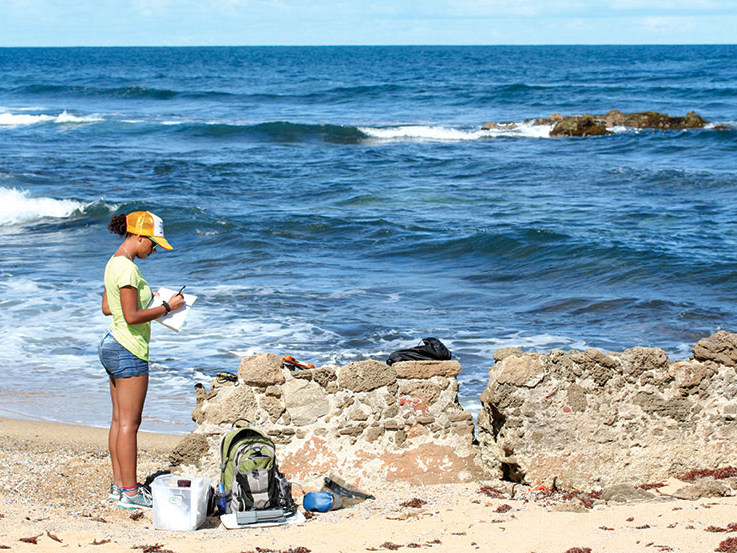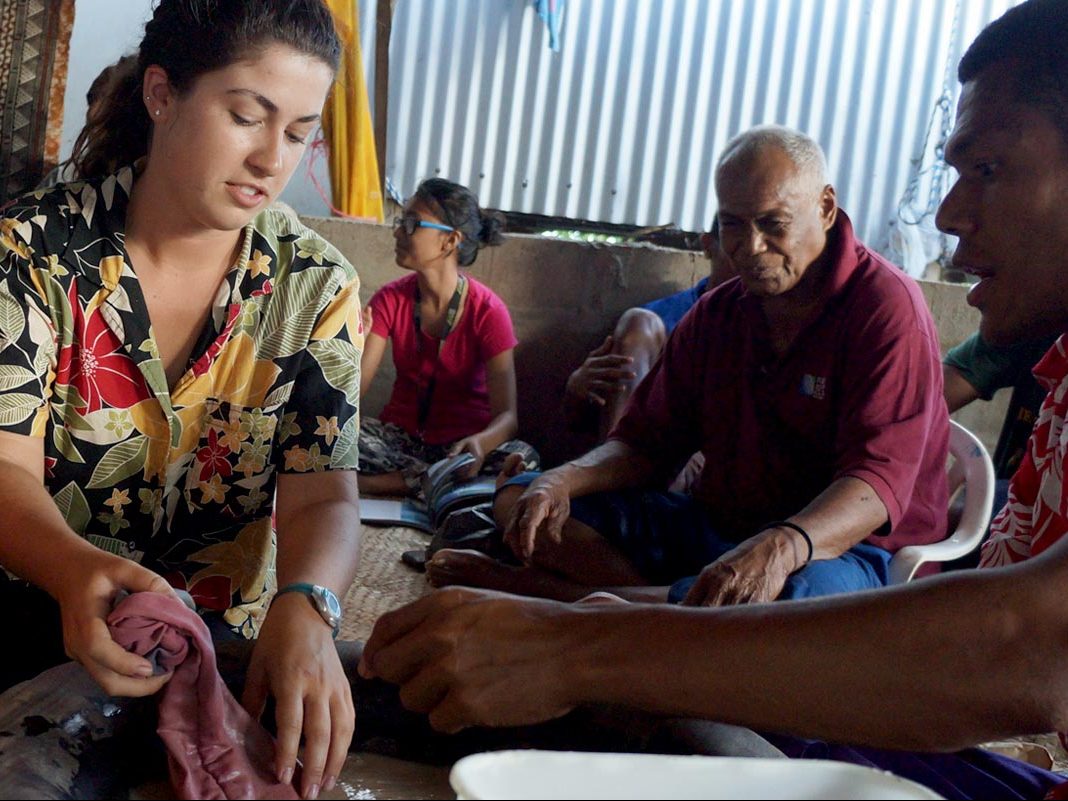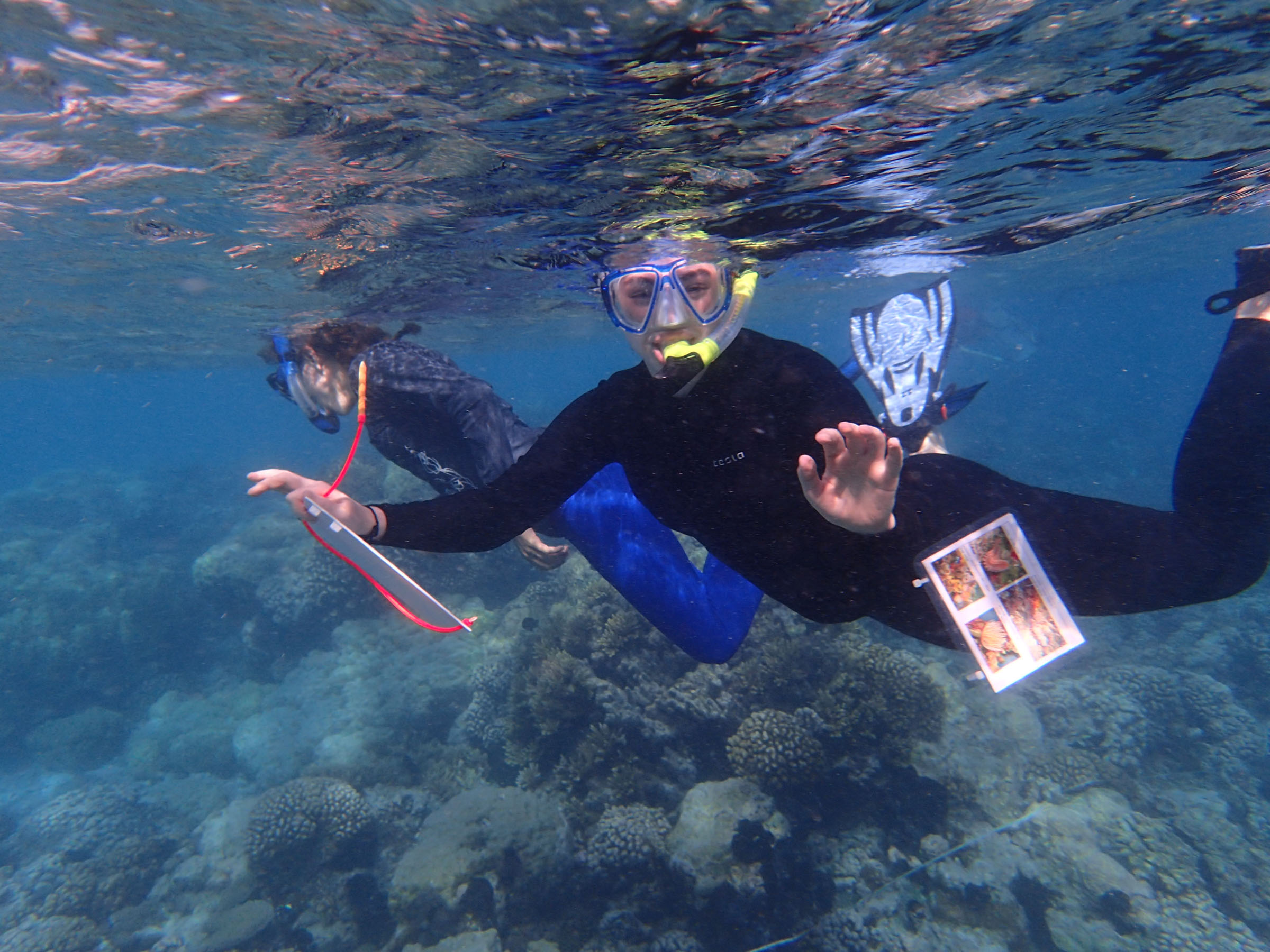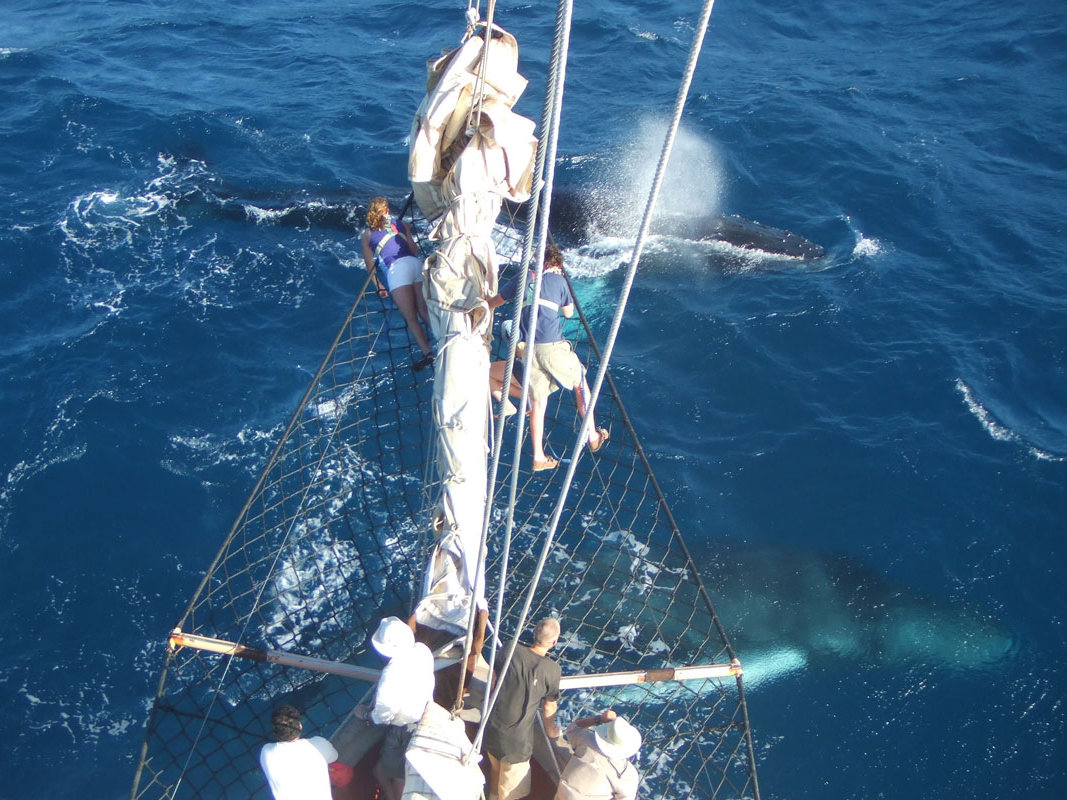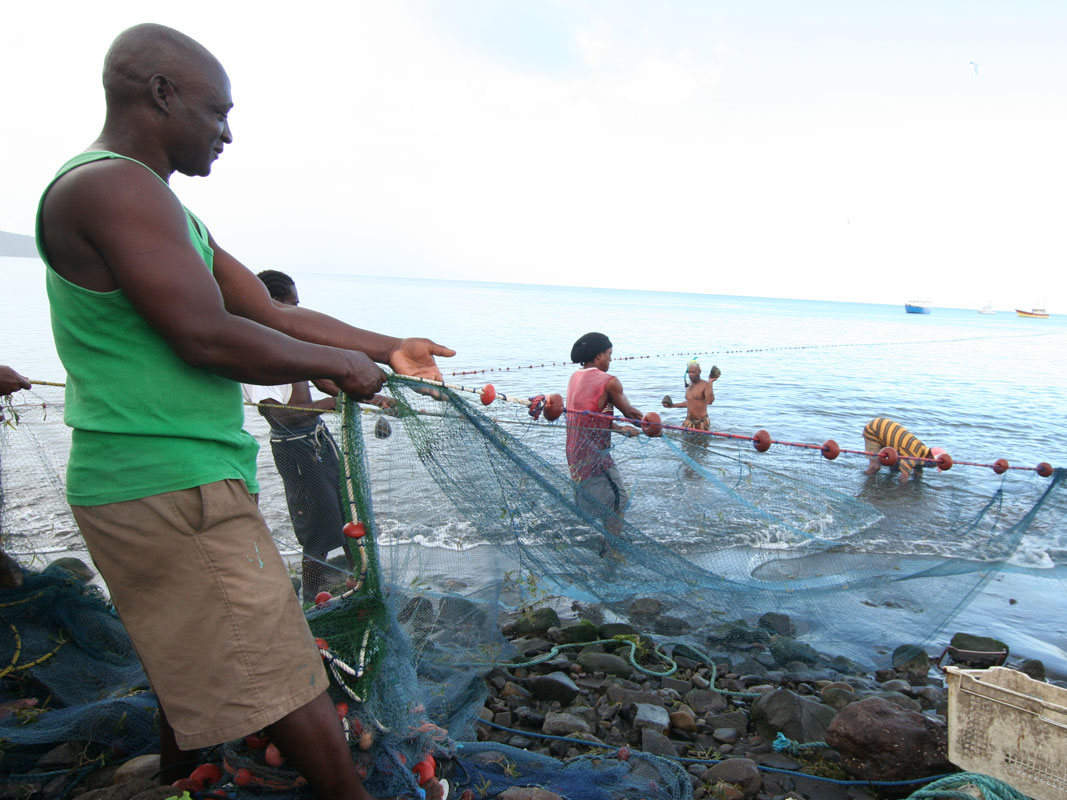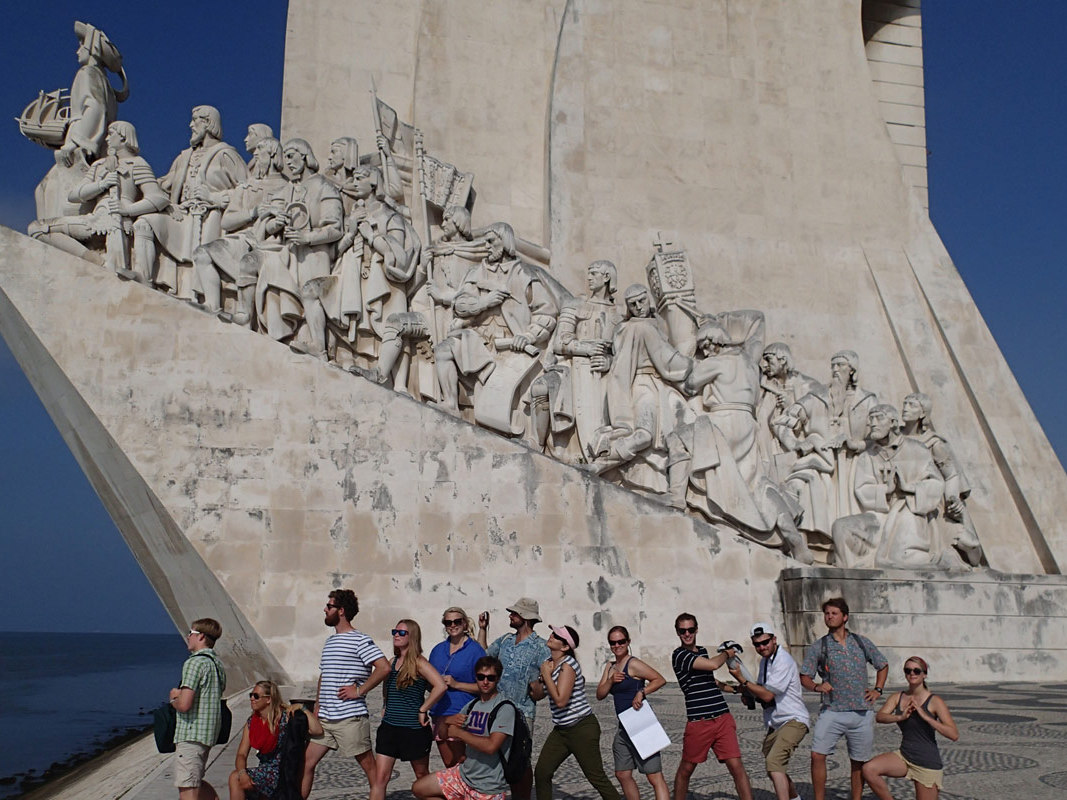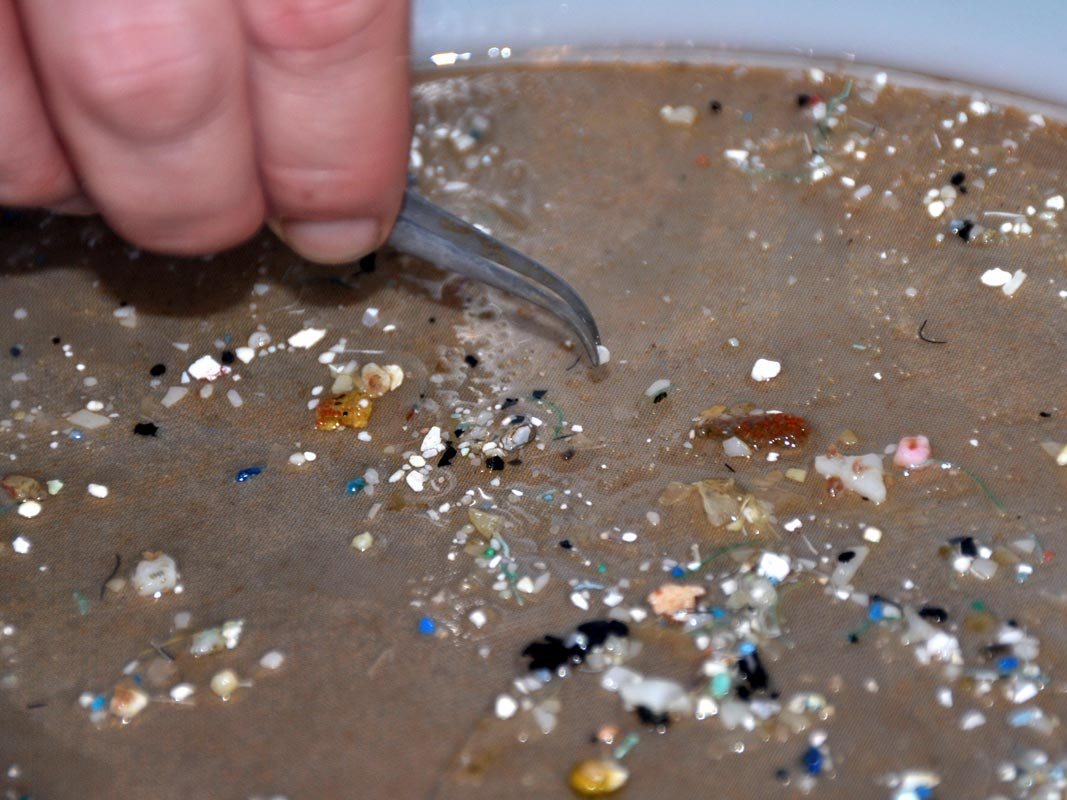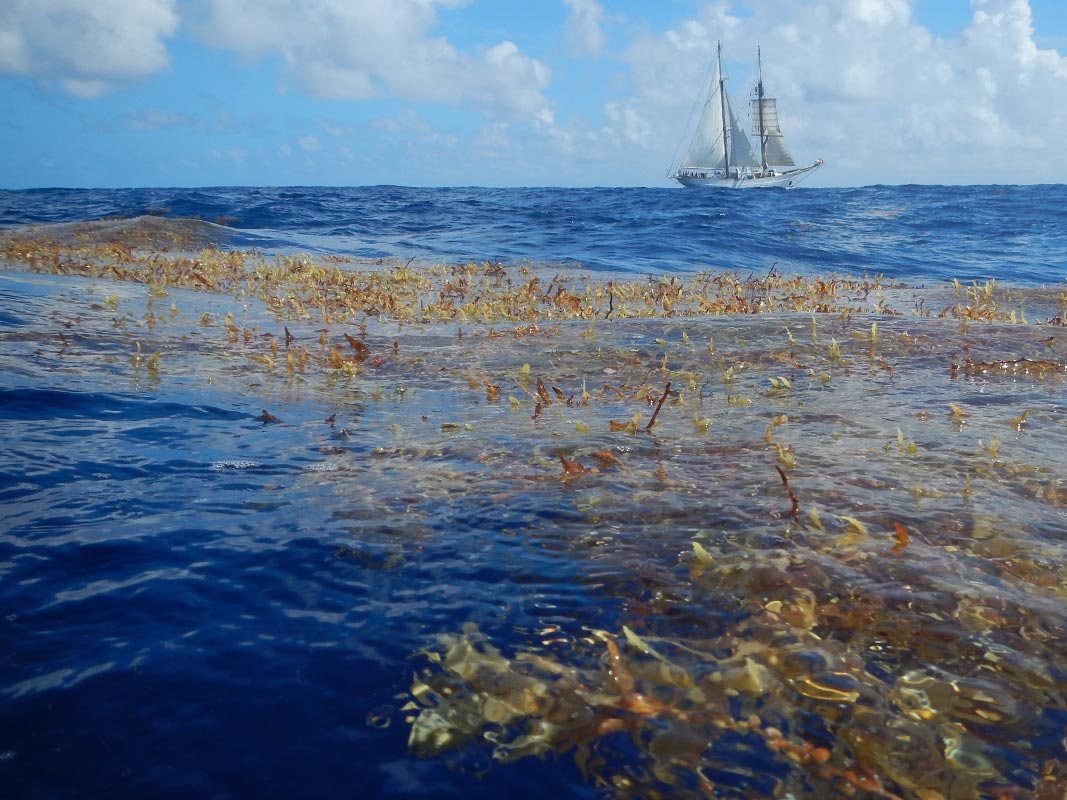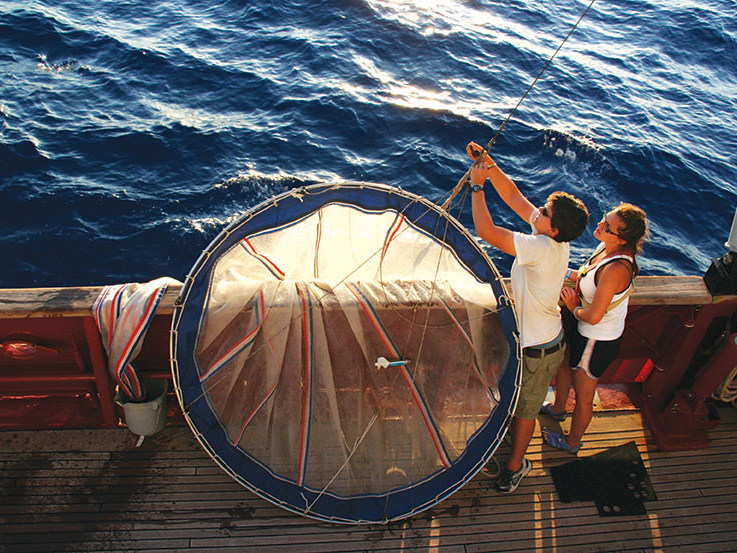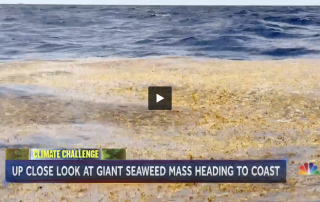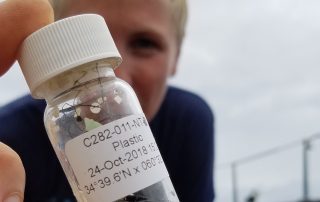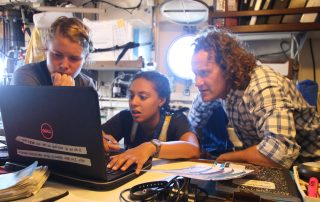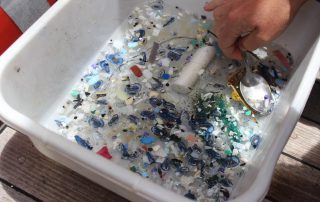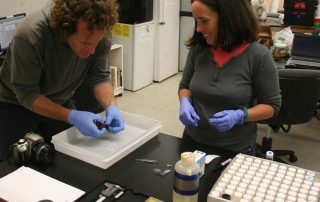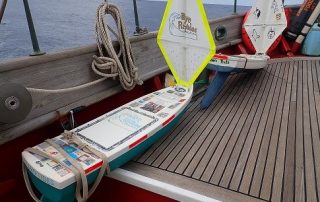Research at SEA
Undergraduate research is a cornerstone of Sea Education Association (SEA), with an emphasis on field-based study in the marine and social sciences. SEA faculty and staff are active in their respective fields through grant-funded research projects, participation in professional conferences, and publication in scholarly journals.
Faculty encourage SEA students to contribute new aspects to ongoing research or to develop their own avenues of inquiry, as they guide students through the entire research process from defining the scope of study to final presentation of their work. Many students continue their research upon return to their home institutions, using the field data collected at SEA as the basis of capstone or senior thesis projects. Others remain involved in the research they contributed to during their time at SEA and are subsequently invited as co-authors on presentations and publications resulting from their work.
We invite you to explore the major avenues of research conducted by SEA students, faculty and staff.
Areas of Research
Climate Change
Lindee Taha2022-03-07T19:26:45-05:00Understanding climate change is the predominant scientific challenge of our time, as rising atmospheric carbon dioxide (CO2) and temperatures influence shifts in weather, storm activity, sea level, biodiversity, and numerous other processes. SEA Semester leverages the opportunities presented by its remote, open ocean cruise tracks and repeated annual sampling to build valuable datasets in poorly studied areas of the world.
Cultural Sustainability
Lindee Taha2023-01-25T10:23:11-05:00Cultural sustainability is the capacity of groups of people to develop and maintain modes of living on their own terms through knowledge, practices, social networks, and objects that hold significance for them. Over several centuries, the regions through which SEA vessels sail have experienced dramatic changes from European and American mariners, missionaries, colonial governments, and migrations.
Field Oceanography
Lindee Taha2022-03-14T18:10:45-05:00While at sea, SEA Semester students learn how to safely deploy and recover modern sampling instruments, conduct chemical and biological laboratory research, analyze oceanographic data, and operate a fully equipped research vessel. The suite of sampling conducted depends on the cruise track and student project needs. SEA’s scientific work occurs both far offshore in the open ocean and along a diversity of coastal ecosystems.
Marine Biodiversity
Lindee Taha2023-01-19T09:58:06-05:00Biodiversity within species (genetic diversity) and between species is critical for maintaining the health, productivity and resilience of an ecosystem. Marine biodiversity, in particular, has the potential to transform medicine, industry, environmental remediation and energy production. However, marine biodiversity is simultaneously under-sampled and threatened by pollution, habitat destruction, fishing and climate change.
Marine Environmental History
Lindee Taha2022-03-07T19:28:05-05:00Marine environmental history explores the intersection of humans and island ecosystems from mountain tops to coral reefs and across coastal exclusive economic zones (EEZs). Historical study begins at the time of indigenous peoples’ migrations and continues through tumultuous centuries of European conquest and colonization, leading to the contemporary era of island independence and the rise of mass tourism.
Maritime History and Culture
Lindee Taha2022-03-07T19:27:39-05:00Human activities near, on and within the oceans have drawn considerable attention from scholars, particularly in the contexts of global commerce, travel, resource conservation and climate change. Interests range from the movement of goods, ideas and people across oceans, to the literature, art and folkways inspired by the sea, to the social fabric of communities intimately connected to the water.
Ocean Plastics and Marine Pollution
Lindee Taha2022-03-14T18:37:56-05:00Marine pollution has been a focus of SEA student research since the early 1980s. Tar balls and plastic particles have been collected and counted in routine, twice-daily surface plankton net tows, resulting in long-term records of contamination in the North Atlantic Ocean, Caribbean Sea, and North and South Pacific Oceans. During this time, the occurrence of floating tar balls has substantially declined, in contrast to floating plastic debris, which continues to persist.
Sargassum Ecosystem
Lindee Taha2022-03-14T18:37:19-05:00Pelagic Sargassum is a macroalgae that drifts at the ocean surface, creating a unique and ecologically-significant marine ecosystem. Accumulations of Sargassum, whether they be isolated clumps or aggregated long windrows or mats covering 100’s of square meters, serve as a food source, nursery for juveniles, spawning ground and/or protective habitat for diverse invertebrate, fish, turtle and seabird species at various points of their life cycle.
Strategies for Ocean Health and Resilience Policy
Lindee Taha2022-03-14T18:15:43-05:00How can we both conserve ecosystems and grow our maritime economies? SEA Semester marine policy efforts address the reality that strong economies rely on a healthy environment, and thriving ecosystems require support by well-planned management structures and communities with both the resources and the will to protect. These human and natural systems rely on scientific understanding of marine processes and organisms and social scientists who can translate legal, policy-related, and scientific language, events and timescales.
Recent SEA Research in the News
SEA Research Featured on NBC News with Lester Holt
Masses of seaweed multiplying at [...]
SEA’s Dr. Kara Lavender Law: collaborating to solve ocean plastic pollution
A new report, "The future of ocean [...]
With Newly Published Research, SEA’s Dr. Jeff Schell Seeks to Unlock Mysteries of Vital North Atlantic Ecosystem
By Douglas Karlson With co-authors and former [...]
SEA Plastics Lab Launches New Website
This week, the SEA Plastics Lab launched [...]
Dr. Jeff Schell Receives Henry L. and Grace Doherty Chair of Ocean Studies
SEA Professor of Oceanography Jeff Schell [...]
Miniboat launched by SEA Class C-294 lands in Norway
RYE, NH. A 5.5 foot long uncrewed [...]

